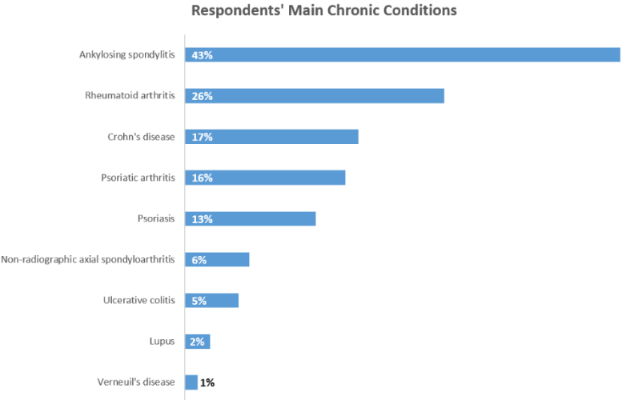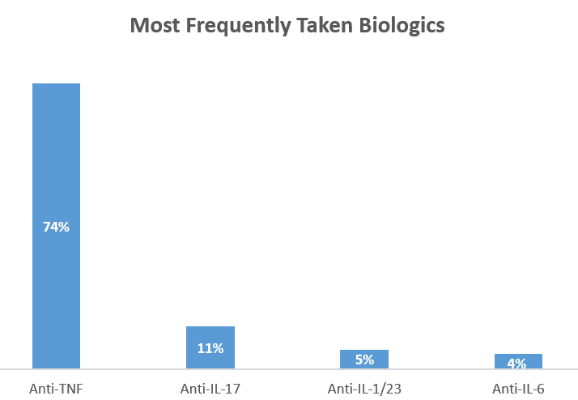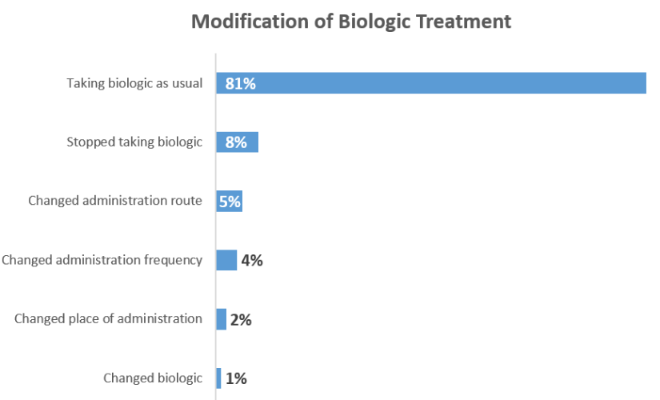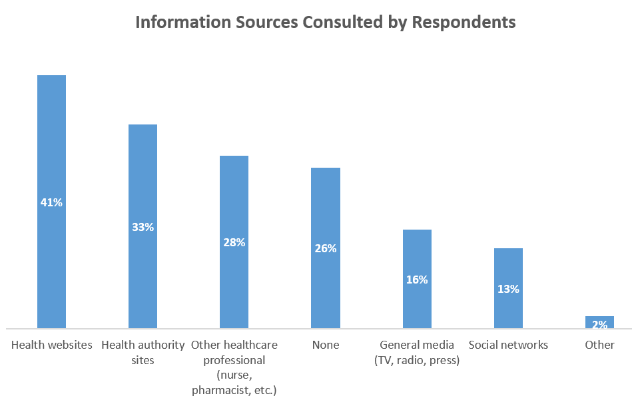COVID-19 & Biologics: Patients Share their Experience
Published Jun 4, 2020 • Updated Jun 12, 2020 • By Courtney Johnson
Carenity conducted a survey to measure the impact of the COVID-19 pandemic on access to specific, treatment-related information for chronic disease patients undergoing biologic therapy. Biologic therapy (also known as biotherapy or biological therapy) is a form of treatment using biologics, or products derived from living organisms and biological processes, with the aim of treating diseases or maintaining good health (yeasts, microbes, genes, cells, tissue, etc.). They are often used in the treatment of inflammatory diseases such as ankylosing spondylitis, rheumatoid arthritis and Crohn's disease, among others.

721 patients responded to our survey
721 patients undergoing biotherapy in France, Germany, Italy, Spain, the United Kingdom, and the United States participated in our survey conducted from April 2nd to May 26th, 2020.
Respondents are mostly women (79%) with an average age of 49 years.

The majority of respondents have ankylosing spondylitis (43%), rheumatoid arthritis (26%), Crohn’s disease (17%), psoriatic arthritis (16%), and psoriasis (13%).
Most respondents are taking TNF inhibitors, which include medications such as etanercept (ENBREL), infliximab (REMICADE), adalimumab (HUMIRA), certolizumab pegol (CIMZIA) and golimumab (SIMPONI):

Patients have remained in contact with their doctor during the pandemic
55% of patients spoke with their doctor about COVID-19 and their biologic therapy. More specifically, 28% discussed it with their doctor as part of their usual care, 19% contacted their doctor specifically to talk about it, and 8% had their doctor reach out to them to speak about it.
Of the patients who were in contact with their doctor, the majority (72%) were advised to continue their biologic therapy as usual. 27% were instructed to stop taking their biologic therapy immediately if they developed COVID-19 symptoms and 25% to stop taking the biologic therapy immediately if they had been in contact with someone who had COVID-19. Only 6% were told to stop taking their biologic therapy immediately.
92% of these patients who received specific guidance from their doctor followed it to the letter.
81% of patients have continued their biotherapy as usual during the pandemic
Although the vast majority of patients have continued to take their treatment as usual, almost 1 in 5 patients changed the way they take their biotherapy. Of these patients, 8% have even stopped their treatment altogether.

Many patients sought to further inform themselves on biotherapy and COVID-19
Besides the doctor treating them for their chronic illness, many patients looked to other information sources to inform themselves on biologic treatment in the context of COVID-19. Patients who discussed COVID-19 and their biologic treatment with their doctor were more likely to consult other sources of information to learn about biotherapies in the context of COVID-19 (79% vs. 68%), such as health websites like Carenity (41%), health authority websites (33%), or another healthcare professional (28%).

While generally patients reported feeling well informed (71%), those who spoke with their doctor were more likely to feel they had been exposed to conflicting information related to the use of their biologic medications during the outbreak.
Patients share their concerns and look for more information
A number of respondents share their concerns about taking a course of biotherapy during the COVID-19 outbreak:
- What are the precise risks of catching the virus patients on biologic therapy?
- What will happen if I catch COVID-19?
- What should I be doing to protect myself during the lockdown?
- Can I go back to work safely?
- How to continue protecting myself when the lockdown ends?
Survey conducted by Carenity among 721 chronic patients undergoing biotherapy in France, Germany, Italy, Spain, the United Kingdom, and the United States.
Are you worried about the impact of the virus on your health post-lockdown? What has your experience been on biologic therapy during and after lockdown?
Feel free to share your thoughts and opinions below!

 Facebook
Facebook Twitter
Twitter


